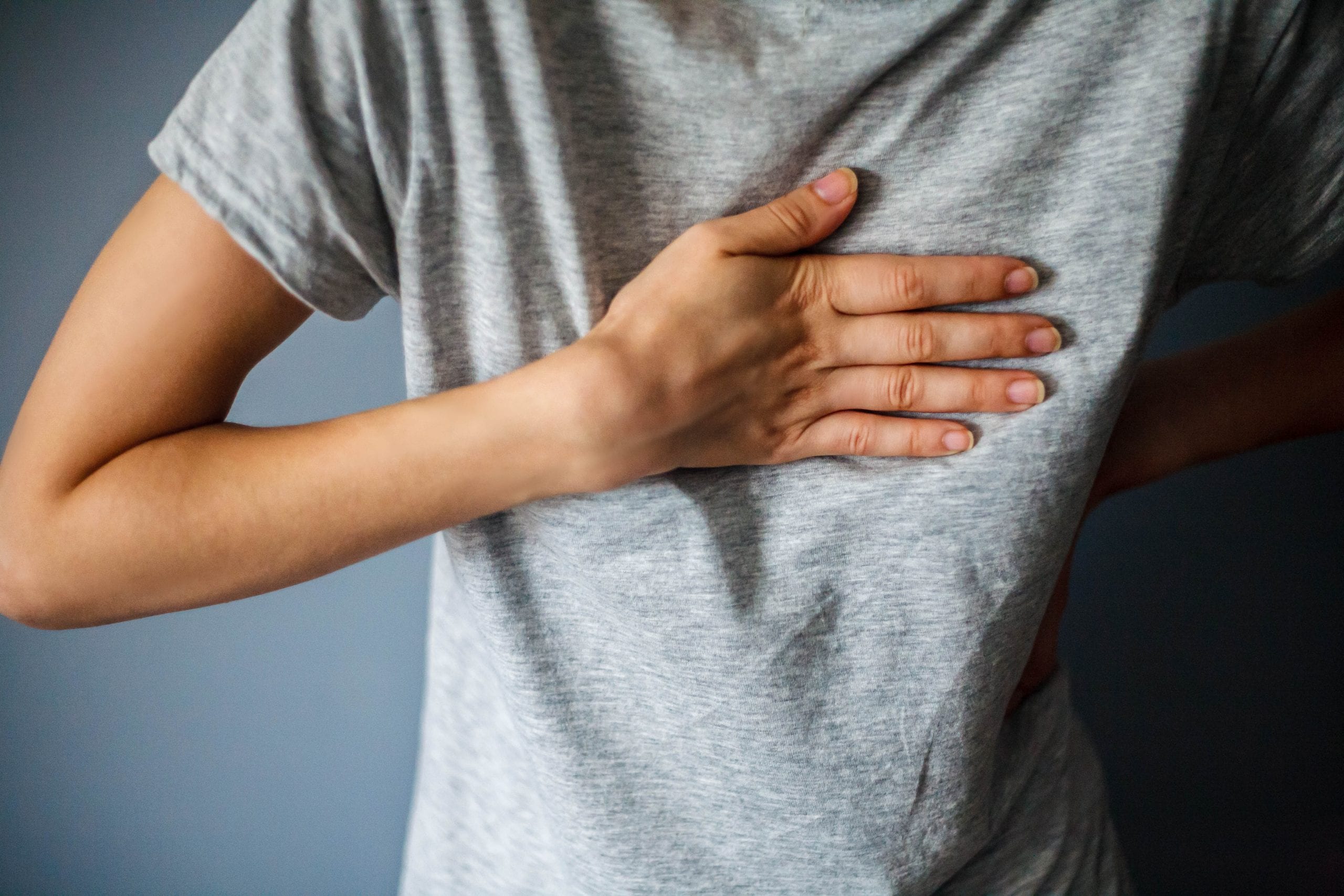Occasional Heart Pain
Chest pain refers to pain in any section of the chest. Chest pain may be felt anywhere from the neck to the upper abdomen. In most cases, depending on the cause, chest pain can be
- Occasional Pain In Heart
- Is It Normal To Have Occasional Heart Pains
- Is Occasional Heart Pain Normal
- Occasional Chest Pain
- Heart Attack Pain Location Pictures
Occasional heartburn is not usually a cause for concern. However, recurrent heartburn may be a sign of gastroesophageal reflux disease (GERD). In people with GERD, stomach acid frequently leaks. Typical heart attack signs and symptoms include: Pressure, tightness, pain, or a squeezing or aching sensation in your chest or arms that may spread to your neck, jaw or back Nausea, indigestion, heartburn or abdominal pain. Angina is not a disease in itself, but it’s generally a symptom of a heart problem such as coronary heart disease. Angina is the chest pain, discomfort, or pressure you get when your heart muscle. Heart attack, abnormal heartbeats (arrhythmias), and heart failure are other common heart disease conditions. 1 Common heart disease warning signs for these conditions include chest pain, palpitations, shortness of breath, fatigue, and swelling from fluid retention. Chest pain is the most common symptom of CAD and of.
Causes of chest pain can be mild, like heartburn, or dangerous, like pancreatitis. Know the common causes of chest pain—because it isn't always caused by a heart attack.
- Sharp pain- This is a sudden or intense pain in the chest region
- Burning
- Dull
- Aching
- A tight, crushing, or squeezing sensation
Occasional Pain In Heart

Is It Normal To Have Occasional Heart Pains
In most cases, people associate chest pain with heart complications. However, this is not always the case. For example, chest pain can come from the lungs, ribs, or esophagus. Chest pain also varies from one person to another depending on some factors like age, weight, stress levels, lifestyle, and sex among other factors.

Chest pain is a common condition, for instance in the U.S, about 6-8 million patients annually, report to emergency departments with chest pains.Other associated symptoms of chest pain include vomiting, nausea, dizziness, anxiety, shortness of breath, and sweating.
It should also be noted that some chest pain may be serious while others may not. The type, duration, and severity of the pain among other symptoms can guide more on diagnosis and treatment.
What Causes Sudden Sharp Pain in Chest?
As discussed earlier, chest pain can be an indication of a life-threatening medical condition or just an uncomfortable sigh of a passing problem like indigestion. For instance, in America, about 5.8 million people who visit emergency rooms with chest pains, about 85% get diagnosed with heart unrelated conditions.
However, a sudden sharp pain in the chest whether you are resting or exercising should not be ignored as it can be an indication of a serious problem or not. Below are some of the conditions that cause sudden chest pains.
- GERD– The Gastroesophageal Reflux Disease. It can cause a tender and sharp pain in the chest which in most cases is mistaken for a heart attack. It occurs as a result of the stomach contents or acid flow back into the food-pipe thereby irritating the esophagus creating a chest pain or a burning sensation.
- Stable Angina– This often occurs during physical exertion like climbing the stairs or working out. This pain only lasts for a few minutes and reduces with rest.
- Pleuritis- This is usually the inflammation of the lungs lining. It feels like a pressure or pain in the chest which worsen if you try taking a deep breath.
- Costochondritis- This is the inflammation of the cartilage. It causes pain in the chest around the breastbone as a result of viral infection.
Sudden Sharp Pain in Chest Symptoms
Chest pain that occurs suddenly should not be ignored at all. In fact, a sudden sharp pain in the chest is commonly a symptom of a heart attack. However, it is not always associated with heart attack. For example, a sudden sharp pain in chest that goes away quickly left side can be an indication of a heart problem. Below are some symptoms of sudden chest pain.
- Dizziness
- Fainting
- Nausea
- Fainting
- Breathlessness
- Chest Discomfort
Sudden Sharp Pain in Chest that Goes Away Quickly – What Could it be?
Sudden sharp pains that disappear quickly can be caused due to gas, heartburn, smoking, heart problems, stress, and lack of exercises among other factors. Often sudden sharp chest pain lasting a few seconds is not an indication of a serious condition. However, a sharp pain in heart for a second may be dangerous and should be treated.
How to Treat Sharp Pain in the Chest?
- In case you experience a sharp chest pain, it is always important to seek immediate healthcare attention before trying home treatment. It’s very hard to distinguish between symptoms of a heart attack from that of unserious health conditions. For example, if a quick sharp pain in chest center is not treated quickly, it may result in a more severe condition that may even demand a surgery in order to relieve the pain. Before trying treating the condition by yourself, seek medical diagnostic test to understand exactly what is causing the pain.
- In case you are walking or exercising and you experience a chest pain, you slow down and take a rest for a few minutes. If the pain continues, get medical care.
- We have seen that smoking can cause chest pain. It constricts the blood vessels in your body making your heart work harder resulting in a chest pain. Chest pains related to smoking often diminish within few weeks of quitting smoking.
- Chest pains related to stomach problems can be settled with an antacid tablet, drinking water, drinking a spoon of Maalox, or eating crackers. This will help reduce the pain. It’s also important that you avoid foods that irritate your stomach.
- Chest pain caused by stress and anxiety can also be settled by relaxing, meditating, or taking a vacation. Often, anxiety and stress buildup may result in a chest pain.
Catherine is a dedicated freelance health and science writer committed to excellence and professionalism. She specializes in health topics including diet and nutrition, immune-related diseases, surgery, and cancer.
Left arm pain doesn’t always mean you’re having a heart attack. Here’s what to watch for.
Left arm pain — and how the pain moves — can be one of the key differences between men’s and women’s heart attacks.
In men, the left arm pain will move from the shoulder down the left arm or up to the chin. If the pain comes on suddenly and is unusually severe, or is accompanied by pressure or squeezing in the chest, seek emergency treatment immediately.
In women, the pain can be subtler. It can radiate to the right or left arm. It can involve the chin, shoulder blades and upper back. The pain can reach into the abdomen and feel like nausea, indigestion and anxiety. Women are more likely than men to experience shortness of breath, nausea, vomiting and back or jaw pain.
Like in men, chest pain or discomfort is a common heart attack symptom in women. The pressure or squeezing can last for more than a few minutes or be intermittent in women. Seek emergency medical treatment immediately if you have heart attack symptoms.
Not all left arm pain, achiness or difficulty moving is a sign of a heart attack. Sometimes the cause is an injury, compressed nerves or other issues that don’t involve your heart.
Be mindful of the other symptoms, and if they last for more than a couple minutes, get emergency help.
Weakness in the arms or an inability to raise both arms evenly could be a sign of stroke.
Norton Heart & Vascular Institute

Norton Heart & Vascular Institute specialists treat more cardiovascular patients — about 100,000 every year — than any other provider in Louisville and Southern Indiana.
Read More
The American Heart Association at Heart.org/HeartAttack, offers the following common heart attack warning signs:
- Pain or discomfort in the chest
- Lightheadedness, nausea or vomiting
- Jaw, neck or back pain
- Discomfort or pain in the arm or shoulder
- Shortness of breath
Is Occasional Heart Pain Normal

Norton Heart & Vascular Institute
Norton Heart & Vascular Institute specialists treat more people for heart and vascular care — about 250,000 every year — than any other provider in Louisville and Southern Indiana.
Occasional Chest Pain
Norton Heart & Vascular Institute

Heart Attack Pain Location Pictures
Norton Heart & Vascular Institute specialists treat more people for heart and vascular care — about 250,000 every year — than any other provider in Louisville and Southern Indiana.